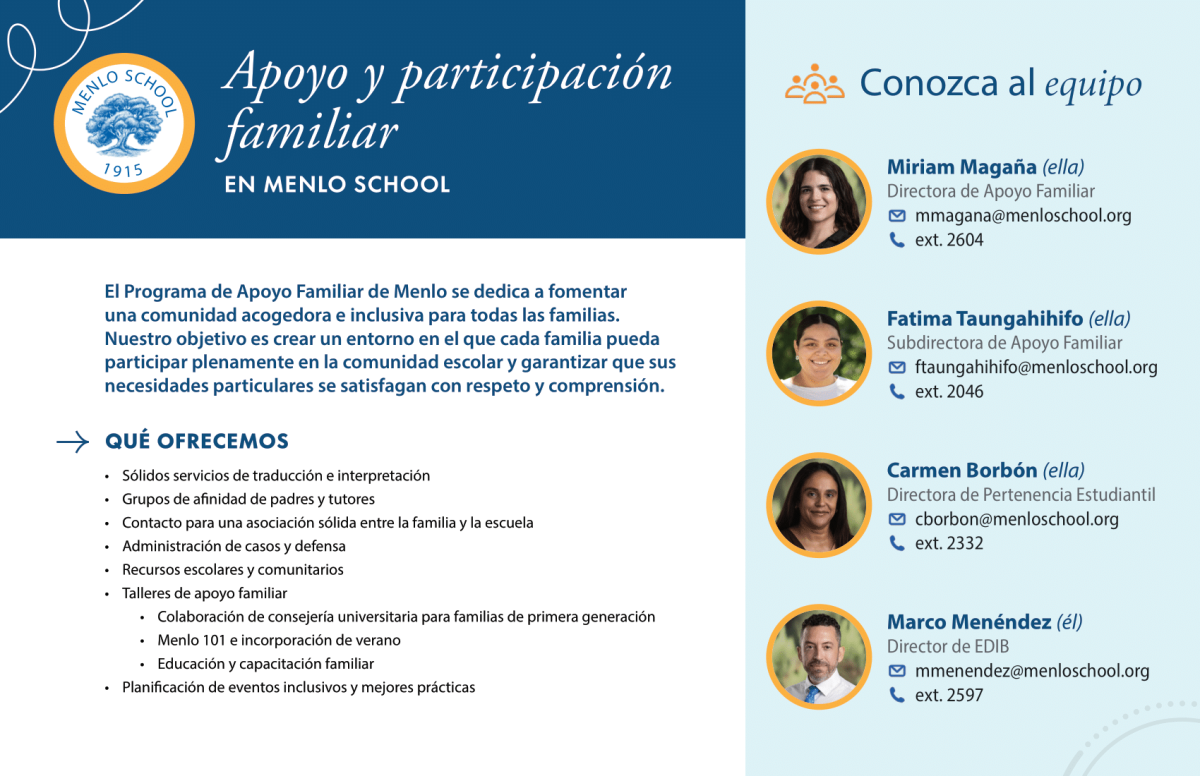As the December holiday season approaches and students rush to organize celebrations and gifts for their friends and families, Menlo teachers have also started thinking about how to best celebrate the holidays in their classes — as well as how to enable their students to participate in holiday celebrations from all different cultures. From New Year’s Eve lucky grapes to Lunar New Year dumpling making, the world language classes are in full swing as they plan their festivities.
Since coming to Menlo sixteen years ago, Mandarin teacher Mingjung Chen has always enjoyed the tradition of making dumplings with her students on the East Asian holiday of Lunar New Year. This year is no exception: Chen aims to hold the dumpling-making festivities on the exact date of this coming Lunar New Year — Jan. 29 — for the most authentic experience. She believes in the importance of commemorating the holiday exactly when it is, as that’s when the celebrations are the most special.
“Students will bring the fillings, and usually they will have their family make the dough,” Chen said. “A couple times we did it in the cafeteria or in the lobby at the gym, so it’s open to everyone.”
While typically this is an event for Upper School students, Chen hopes that this year she can incorporate the wider Menlo community and potentially collaborate with the Middle School’s Mandarin department as well. “It’s a family thing,” Chen said. “It’s supposed to be everybody together, and yes, it’s maybe a little chaotic, but that’s what a holiday [is about].”
In the past, Chen and the Mandarin team have celebrated other traditional Chinese and Taiwanese Lunar New Year customs. Originally, each Mandarin class would have their own role in celebrating the new year. She would teach Mandarin 1 the traditional lion dance, Mandarin 2 would create lucky red decorations and the higher levels would decorate the school.
However, as the Mandarin curriculum and students have become increasingly busy during the holiday season, it has become harder to continue these practices. “[Preparations] used to be the week leading up to [the holidays,] but now it’s only a couple days prior,” Chen said.
Despite these challenges, Chen is still looking forward to this year’s festivities and values the customs she and her students are able to practice together. “I think [we] need to make [celebrating holidays] a tradition, because Mandarin students may not always have a Chinese household or the [opportunity] to practice these things,” Chen said. “I wanted to make it an ongoing thing; it’s good luck to bring to the community.”
On a similar note, Spanish teacher Ivonne Rodríguez Rondon plans to celebrate the classic Gregorian New Year with the Spanish tradition of “las uvas de suerte” — or in English, the “grapes of luck,” as she has for two consecutive years. As the clock chimes 12 times, signaling midnight and the new year, the participant must eat one grape per second as it is believed to bring them luck in the year ahead. Rodríguez Rondon recreates this activity during class time, where she plays the Spanish New Year’s countdown and provides her students grapes to eat while watching it.
Aside from this tradition, Rodríguez Rondon wishes to infuse more holiday traditions into her classes, such as bringing in food from Spain, her native country, for her students to practice Spanish superstitions and feel fully involved in the culture. “I want to make the class feel like an integration of different traditions and cultures,” she said. “I’m hoping we can find some [student] volunteers that may want to share with us their own traditions, so hopefully it will feel a lot more interesting and enriching.”
To Rodríguez Rondon, living nearly 6,000 miles from where she grew up in the Canary Islands, these holiday celebrations with her classes carry meaning for her. Her hope is that her students will learn about and appreciate Spanish culture as well as language through its traditions. “It’s a way to connect with home, even though we’re in the distance,” she said. “It’s important for us to preserve these little traditions because they’re so small but so important for us.”










